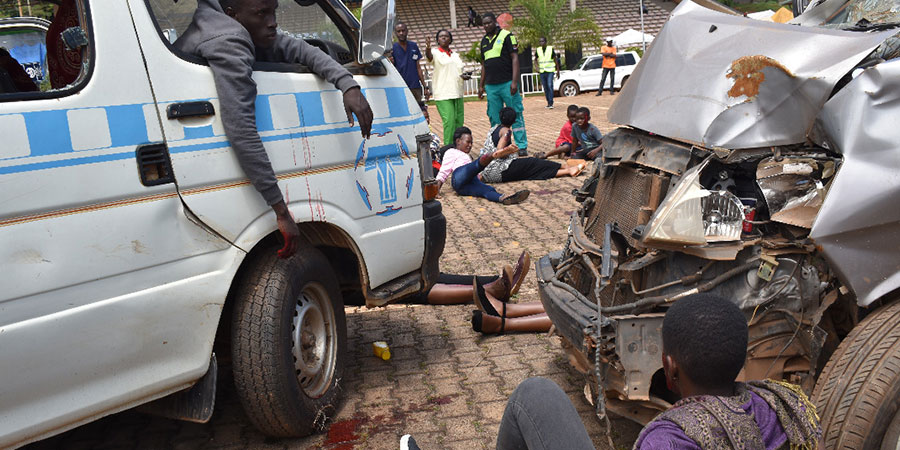Road traffic crashes (RTC) is a global concern, killing millions of people each year with thousand injured each day and more than half of these people are vulnerable road users; pedestrians, cyclists, and motorcyclists. These results suggest that in many countries road safety laws are not comprehensive and enforcement needs to be strengthened.
In Uganda, the road safety situation has deteriorated rapidly over the last few years, mainly due to a number of reasons, which include the growing vehicle population, the lack of appropriate road safety standards and intervention, weak enforcement, and among others. The growing vehicle population is also a significant source of GHGs. Nearly 50% of global CO, HCs, and NOx emissions from fossil fuel combustion come from internal combustion engines (ICE) which is a health hazard. Furthermore, the government spends approximately UGX 4.4 trillion ($1.2 billion) annually, representing 5% of the Gross Domestic Product (GDP), and the main casualties are the pedestrians 40%, followed by 2-wheel occupants boda-boda 33% and motor vehicles 21% respectively.
Road traffic crashes are often covered in the media simply as events—not as a leading killer of people and an enormous drain on a country’s human, health, and financial resources. By framing road safety as a health and development story, with data and in-depth information, journalists have the opportunity to affect the way these stories are told and potentially to help shift public behavior and attitudes, influence policy and therefore contribute towards saving lives.
We believe this campaign is important because road traffic deaths and serious injuries are to a great extent preventable since the risk of incurring injury in a crash is largely predictable and many countermeasures, proven to be effective, exist. Secondly, road traffic injury needs to be considered alongside heart disease, cancer, and stroke as a preventable public health problem that responds well to targeted interventions, Thirdly, the causation of road traffic crashes and injuries is based on four factors – human, vehicle, road, and environment, which can be prevented or controlled through identifying the risk factors and applying 5E’s principles of Engineering (Making product safer for people), Environmental modifications (risk reduction), Enforcement (legal and police measures) –laws, Education/empowerment (human behaviors /attitude change) and Evaluation (determine if intervention, policies programs work – research).
As an NGO we champion drivers’ education and we believe that driving is not a mere knowledge of the road signs or mastering vehicle controls. In fact, the driver must go through a profound learning process in order to acquire the capabilities and, particularly, to understand why it is absolutely necessary to behave one way or the other. Hence, there must be a deliberate move, a paradigm shift from the old thinking to a new ‘Thinking to Drive’ concept which is going to be based on three main pillars; a) the ability of drivers to understand, analyze traffic situations and make decisions that minimize the changes of the occurrence of any possible risky situation, b) the focus on the person, particularly the vulnerable road user, and c) support the provision of generic tools for sustainable mobility, not only from a car or motorcycle or driver perspective. In addition to these three pillars, the following core ingredients should be included; emotional intelligence, motivational aspects, driving experience, and a systematic approach. This new thinking will place the person and in particular the vulnerable road user, as the core of the road mobility system. When the person is in the center of the road mobility system, the ethical dimension (i.e. right of safety, safety first, safety for all), economic dimension (i.e. cost of accidents and value of prevention), and social dimension (i.e. risk inequality) they all come to play.
James Akena
Board Member
Legacy Road Safety Initiative (LRSI)
Email: jamesakena@yahoo.com
Tel: +256 752 916 575 | 772 888 622


